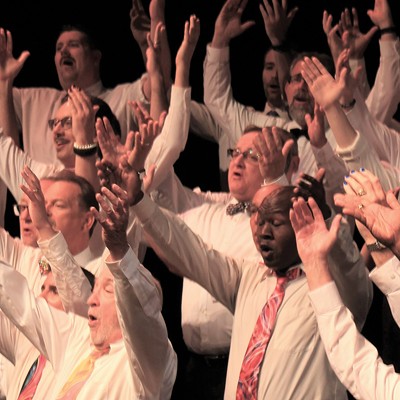It is difficult knowing just where to begin when talking about an institution that is as wholesome and American as apple pie, but has enough complexities, lead characters and melodramatic plot twists to make a soap opera blush.
While the Beach Boys will forever be remembered for a string of hits about surfing and cars in the early 1960s, this is actually but a small part of an expansive catalog marked by soaring vocal arrangements with multilayered harmonies, many of which, in the mid-to-late '60s, were patterned after Phil Spector's famous Wall of Sound.
Conventional wisdom says the Beach Boys peaked creatively with the release of Pet Sounds in 1966 and the smash follow-up, "Good Vibrations." Up to that point, Brian Wilson, the group's primary composer, arranger and producer, had risen to every challenge, churning out hit after hit while also writing and producing the several albums a year demanded by Capitol Records. There was also that business of keeping pace creatively with the only other group that mattered, the Beatles.
For Wilson, this was more than a friendly competition; it was a compulsion, possibly fueled by a desire to please his overbearing father, Murry Wilson, the band's first manager. (His abusive behavior, emotional and otherwise, has been alleged and chronicled in several different biographies and publications.)
Their legacy, for better or worse, will be as much about the drama as it is about the music. Brian's subsequent decline into drug abuse and mental illness, which coincided with his inability to complete what he hoped would be his Sgt. Pepper, Smile, has also garnered much attention, and has long been fodder for a never-ending gossip mill. Throw in the difficult relationships between Mike Love and the late Dennis Wilson (who married Love's daughter before drowning in 1983); multiple lawsuits involving a litany of individuals, including Murry and Brian Wilson and Love; several different managers; and the controversial psychiatrist Eugene Landy, who worked extensively with Brian to help get him out of bed and functioning, and you can see there is much to ponder.
The Beach Boys are preparing to embark upon a world tour (that will begin in Tucson) to commemorate their 50th anniversary. It will mark the first time that Brian will share a tour with original members Love and Alan Jardine since 1996. Original Beach Boys guitarist David Marks will also be a part of the tour.
To help make a little sense of it all, the Tucson Weekly spoke with longtime Beach Boy Bruce Johnston. Perhaps best known for writing Barry Manilow's big hit "I Write the Songs," Johnston has had a long, if slightly anonymous, career with the band that includes no less than three different career arcs.
His first tenure began in April 1965, playing bass on tour and taking the spot held by Glen Campbell, who had replaced Brian once he decided he would rather write than tour. Previously, Johnston had been a staff producer for Columbia Records and had worked with folks like Eddie Cochran, Ritchie Valens and the Everly Brothers.
His first recording session with the Beach Boys included singing on "California Girls," and he stayed with the band until 1972, leaving in the midst of a big-time creative and commercial comeback for the band. Unfortunately for Johnston, this period was dominated by intense personal acrimony and drug abuse within the band.
"The environment started getting funkier and funkier," he says. "I abruptly left because I just couldn't live that way. The Wilson guys (Brian, Carl, Dennis) were all distracted by drug abuse. It broke my heart when drug-dealer guys would show up at the sessions. I didn't want to be in a business guided by drugs."
Ironically, he adds, "The most money I made is when I left," when he worked with Elton John and Pink Floyd.
This resurgence of the band coincided with the recording and release of Surf's Up in 1971. "These were beautiful pieces of material turned into a quilt. It was difficult to get Brian involved, but the timing was right, as this was more of a group effort." While the album included two pieces salvaged from Brian's Smile ("'Til I Die," "Surf's Up"), it also included Johnston's exquisite composition "Disney Girls (1957)."
"That's probably the finest song I'll ever write," he says. Asked why he didn't contribute more tunes for the band, he says, "I just don't write in the style of the Beach Boys. I'm more of a team-player guy."
Johnston left as the band was making plans to temporarily move to Holland to record, and he was instrumental in bringing South Africans Blondie Chaplin and Ricky Fataar into the band. Both were key parts of that era and were featured prominently on Holland as well as the double live album recorded in 1973.
When Johnston came back to the Beach Boys in the late 1970s, it was a couple of years after Brian's much-celebrated return. He was brought in primarily to produce when it became clear Brian could contribute only in limited ways. Johnston continued to tour as well, which he did until Carl died of lung cancer in 1998. He would tour again with Love under the Beach Boys name, but without Brian—the only surviving Wilson—or Jardine.
As the Beach Boys prepare to hit the road once more, they have been working on a new album, some of which Johnston hopes will make the set list for these shows. He's especially excited about the tune "That's Why God Made the Radio." He's also excited about the tour and the band, "which will include some of Brian's guys," such as keyboard player Darian Sahanaja, who has had a key role in the extremely tight touring band that Brian's employed off and on since 1999. (That band is featured prominently in the PBS documentary Beautiful Dreamer, which documents the rehearsals and production of the 2004 Smile concerts in Europe.) He also promises this show will be a multimedia spectacle, hinting that it may also find a way to integrate the late Carl into the show.
As to how he has managed to survive and flourish within this helter-skelter environment all these years, he says, "I'm the one everyone gets along with. I'm Mr. Switzerland!"









